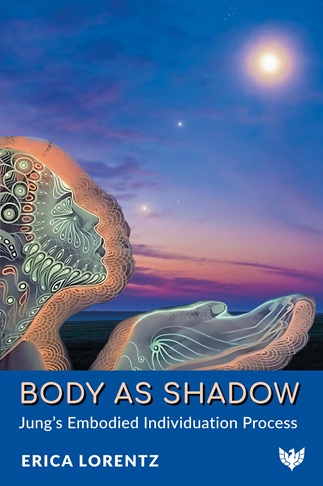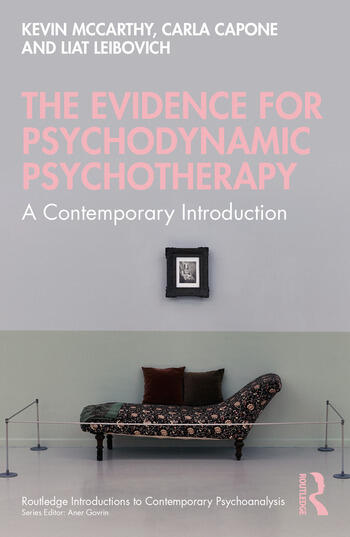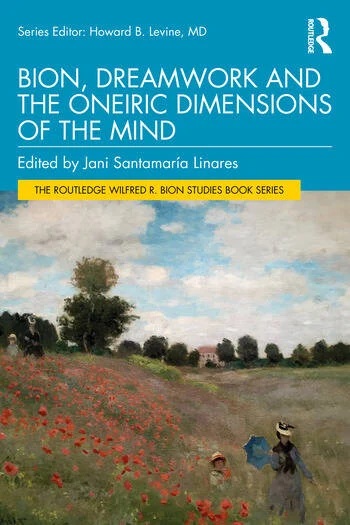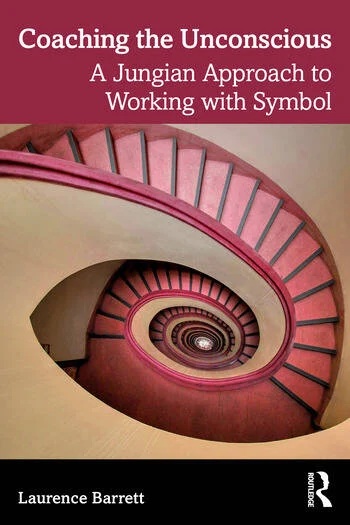Body as Shadow: Jung’s Method of Embodied Healing

Book Details
- Publisher : Karnac Books
- Published : February 2026
- Cover : Paperback
- Pages : 224
- Category :
Jung and Analytical Psychology - Catalogue No : 98276
- ISBN 13 : 9781800134065
- ISBN 10 : 1800134061
There are currently no reviews
Be the first to review
Body as Shadow brings forth in depth the missing piece in Jungian literature concerning Jung’s personal and professional relationship to the embodied soul and the central role it plays in his theory and also in clinical work. A plethora of helpful vignettes detailing clients’ and colleagues’ experiences brings its importance vividly to life.
In a world bursting with theories and techniques about the body and how to incorporate it into therapy and trauma work, very little is written about Jung’s knowledge of the embodied process. Body as Shadow: Jung’s Embodied Individuation Process articulates this Jungian perspective in depth, underpinning Jung’s approach to the body in his theory and practice with neuroscientific research and later Jungian writers who amplify Jung’s perspective with their own theory and clinical knowledge.
Embodied active imagination was Jung’s preferred method of encountering the psyche and traveling along the path of individuation. To illustrate Jung’s theory of active imagination as a powerful tool for transformation, Erica Lorentz presents case material that facilitates the readers’ experience and understanding of the Mundus Imaginalis (the imaginal realm), where soul, body, emotion, energy, imagination, somatic unconscious, and subtle body guide both client and analyst into a dialogue with the personal and archetypal unconscious in the healing work. These vignettes also offer a lens through which readers can perceive the interactive field of the therapeutic relationship. What does this process look like? How do we learn to embrace and work with it? Weaving theory and clinical process, Lorentz expands conceptual understanding, making it embodied and real. Body as Shadow is essential reading for Jungian practitioners, scholars, students, and all therapists interested in deepening their clinical practice.
Reviews and Endorsements
In her compelling new book, Erica Lorentz has provided us with both a practical and theoretically grounded approach to working with what she calls “embodied active imagination.” Beginning her book with an illuminating review of Jung’s own attention to what he called the “somatic unconscious” or “subtle body,” Lorentz shows how the simple inward-directed attention to an emotion, a sensation, or a symptom – all resident in the body – can ignite the imagination and restore the healing connection between childhood trauma and the psyche’s archetypal depths.
Those of us who work in the trauma field know that one cannot access the original wounds of our patients, or the intensity of the original emotional experience itself (where potential healing energies lie), through left-hemispheric interpretations or verbal insight alone. For this we need what Lorentz (citing Janet Adler) calls the “grace of direct experience.” Her many case studies demonstrate the ways in which “embodied active imagination,” carefully applied within the context of a secure therapeutic relationship, can access such direct experience and lead to the healing of those dissociative splits that have resulted from early unremembered trauma. Reading her book has already increased my understanding of the wounded psyche and the methods that best lead to its healing. I highly recommend this book.
Donald Kalsched, author of The Inner World of Trauma and Trauma and the Soul
Erica Lorentz has written a truly wonder-full book, one that should be essential reading for anyone training to be a therapist or Jungian analyst. Lorentz’s book provides the missing understanding of the importance of the body and its relation to the soul. It rescues Jung's insights from oblivion and shows how his process of individuation works. And how alchemy working in the depths of our being, can bring about miraculous healing.
Anne Baring, PhD, Jungian Analyst (IAAP), author of Dream of the Cosmos: A Quest for the Soul
In this beautifully written book, Erica Lorentz speaks to the need for listening to the “sensual authority” of the body, inviting us on a remarkable transformational journey. While I have not personally experienced the embodied active Imagination process or the Authentic Movement modality, the many fascinating examples the author gives of her own and her clients’ experiences could just as easily have come from the practice of Holotropic Breathwork®, with which I have been involved for over thirty-five years. Essential to both modalities: allowing the process/energy to move through the body; opening to the power and importance of the archetypal world; and facilitator presence as non-directive witness. This book touched me deeply and I recommend it for anyone interested in expanded states of consciousness in general, as well as approaches that favor embodied expression in particular.
Cary Sparks, Director, Institute for Holotropics, Inc. (Grof Transpersonal Training)
Erica Lorentz has created a book about creative imagination and body that matters. She describes the richness that ensues when we let the depth of soul reverberate consciously in our embodied life. How vitality grips us and leads us to hitherto undreamed places and drops us into the core of our being. The book is methodical and practical, a fascinating read for one who wishes to move out of the periphery of their existence and move to a central experience in which life truly matters. Highly recommended for the lay person (all of us) and the professional. This is a book whose time has come.
Robert Bosnak, PsyA, Jungian Psychoanalyst (IAAP), originator of Embodied Imagination®
Erica Lorentz delves into how physicality, embodiment, and sensory experience intertwine with Jung’s theories of self-discovery and personal growth. She challenges traditional interpretations of Jung’s work by proposing that the body plays a pivotal role, not just as a vessel but as a profound mirror of the psyche’s depths. By exploring how the body manifests and reflects unconscious processes, readers are invited to reconsider their own paths toward self-awareness and wholeness. Body as Shadow is poised to resonate deeply with scholars and practitioners alike, offering fresh perspectives on timeless themes of identity, integration, and the transformative power of self-discovery.
Anuradha Sathiyaseelan, PhD, Head of Indian Psychology Lab, Christ University, Bangalore, India
Erica Lorentz has written a useful, practical, readable text for the professional or lay person. Body as Shadow highlights the continued neglect of the body in psychotherapeutic practice. This is a powerful corrective and helpful tool to expand the healing process. By weaving together Jungian theory, personal narrative, and case material she brings this somatic wisdom to life through embodied active imagination. As a trainer of spiritual directors influenced by Jung, I intend to use this book as a required text for a critical piece of their formation. I recommend this book for anyone with interest in Jung, Wholeness, Healing, Spiritual Growth, and Somatic Experiences.
Dr. Donald Bisson, DMin, creator of Jungian Psychology and Spiritual Direction: A Visit with Don Bisson (DVD)
Table of Contents
About the author
Introduction
1. The embodied soul
2. Body as shadow
3. Jung’s embodied individuation process
4. Psychoid phenomena and subtle body
5. Embodied active imagination
6. Movement as active imagination
Conclusion
Weaving theory into practice
References
Index
About the Author(s)
Erica Lorentz fell in love with dance as a child. Later, she was interested in a broad range of dance and movement modalities that brought her into energic, emotional, and imaginal expression. At the age of twenty-three, she began working with her authentic movement (Movement as Active Imagination) mentor, Janet Adler. Adler put her feet on the path of an embodied approach to psychology. Authentic movement taught her not only how to tune deeply into her own embodied soul (energy, emotions, imagination, somatic unconscious, and subtle body), but also it taught her how to sit with and witness others without judgement or interpretation. This became a foundation for her analytic work.
In graduate school, Erica Lorentz focused on object relations under the tutelage of psychoanalyst Dr. Elaine Seigel. Working with autistic and schizophrenic children and adolescents demanded that she use an embodied nonverbal approach to create a transference relationship. After graduating, she taught object relations at Antioch Graduate School of Professional Psychology for four years.
Her training did not feel complete. It left out the creative and archetypal power of the unconscious world. In 1988, she began training to become a psychoanalyst with the Inter-Regional Society of Jungian Analysts (IRSJA). At this time, she had a clinical practice and taught courses and lectures on Jung and the expressive arts at the Jung Center in Houston TX. Eventually, she became the Director of the School for Expressive Arts.
In 1998, she wrote her thesis on “Jung, Spirituality, and the Body” and became a Jungian psychoanalyst (IAAP). The research for her thesis revealed how much Jung honored and spoke of the importance of embodied experience for transformation and how central it was in his theory. She became a training analyst for the IRSJA. Presently, she is a training analyst in the C. G. Jung Institute of New England and has a private practice.
Since 1986, she has given lectures and taught workshops focused on Jung and the body and embodied active imagination throughout the US and Canada, and in the UK. She has created several webinars for the Jung Platform and has been interviewed by Pacific radio. One of her lectures was filmed by New England Public Radio. In 2024, she had the honor of teaching in India for the Jungian psychoanalytic router training program, SMART, an expressive arts training program, and Christ University, where she gave a brief talk at the inauguration of the Indian Psychology Lab and a lecture for the graduate psychology department.
Customer Reviews
Our customers have not yet reviewed this title. Be the first add your own review for this title.
You may also like
The Brain That Changes Itself: Stories of Personal Triumph From the Frontiers...
Norman Doidge
Price £10.99
The Evidence for Psychodynamic Psychotherapy: A Contemporary Introduction
Kevin McCarthy
Price £21.99







